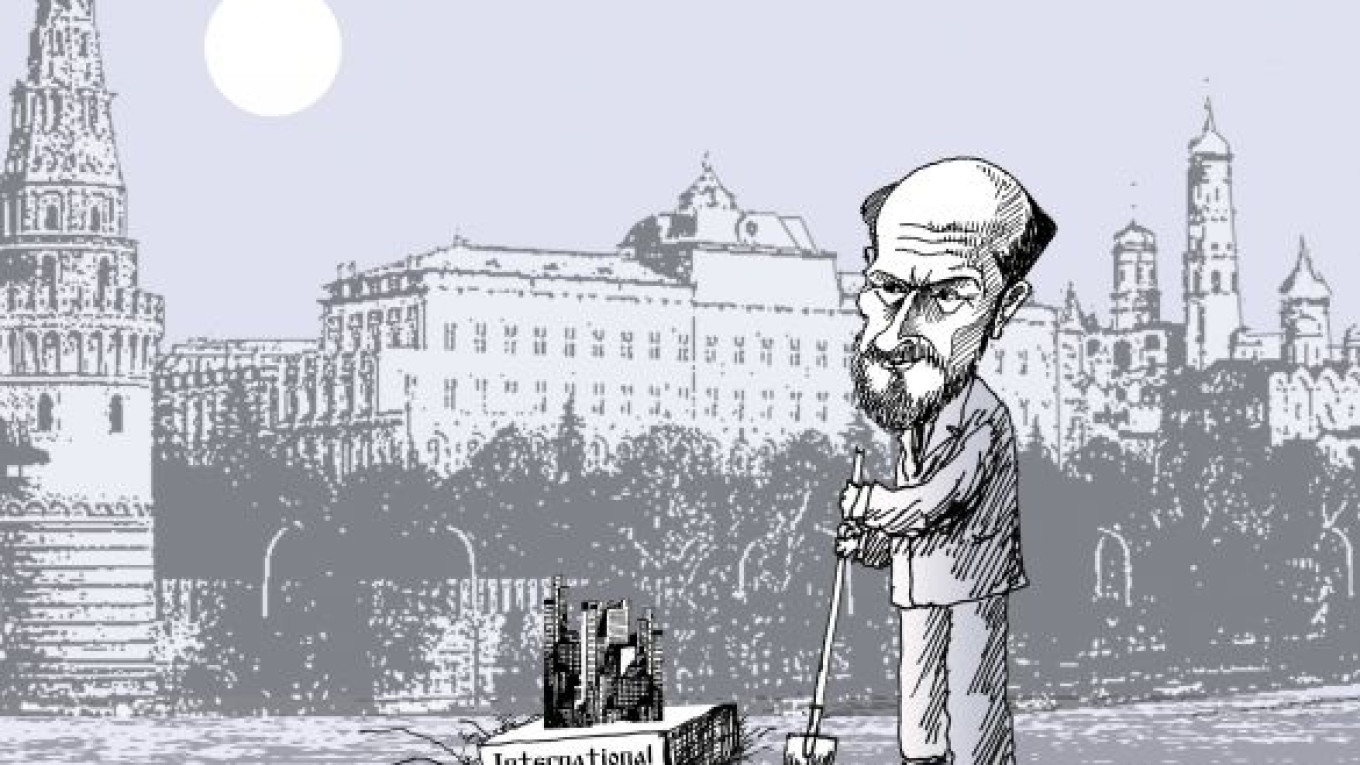During his speech Friday at the St. Petersburg International Economic Forum, President Dmitry Medvedev focused in part on the idea of developing Moscow into an international financial center. This has emerged as a key component of the president’s broader program to modernize the country?€™s economy.
Efforts to improve the investment environment are to be lauded and encouraged, but Moscow has a long way to go? before it could be called a global financial center. In a March study of global financial centers commissioned by the City of London that assessed the competitiveness of financial centers around the world, Moscow was ranked No. 68 out of 75.
From such a low base, Moscow should be able to improve its prospects and position. Very modest progress in strengthening property and ownership rights, improving corporate governance, cutting red tape and fighting corruption would be the best place to start. Any movement on legislation to limit insider trading and price manipulation and to adopt laws on exchanges, clearing and a central depository, would also boost Moscow?€™s ranking. Encouragingly, the Russian government appears eager to draw upon international experience to do it right.
The appointment of Alexander Voloshin, the former chief of staff in the administrations of Presidents Boris Yeltsin and Vladimir Putin, as head of a financial center coordination group is a sign that the Kremlin means business. Voloshin has extensive experience with managing politicized processes and has a solid reputation for getting things done.
But if bright ideas and a bit of determination were all it took, Russia would have already become a large Switzerland. Upgrading Moscow?€™s financial sector infrastructure to the level of dozens of other would-be global financial centers won?€™t be enough. What happens if they build a financial center, but companies and investors don?€™t come?
The danger is that the government will try to impose its international financial center concept on Russian companies and investors, which could do much more harm than good. For example, publicly traded Russian issuers are currently subject to ceilings on the percentage of shares that are allowed to trade on foreign exchanges? as American Depositary Receipts. Russian authorities could at some stage reduce this cap in an effort to force Russian companies to tap local markets. On fixed income markets, the authorities could enact measures to limit Eurobond issuances abroad, thereby giving Russian companies that are trying to raise capital no other option but to tap local markets.
The likely result of these kinds of efforts would be to deter the very capital the Russian government is trying to woo. Both international and domestic investors would shy away from an artificial market. As a result, the cost of raising capital in the new Russian financial center would skyrocket, as would-be issuers chase a smaller pool of capital. Companies listed only on Russian markets would trade at even larger valuation discounts than similar companies on freer markets. In an effort to circumvent domestic issuance rules, some companies could elect to establish a legal domicile outside of Russia to gain more complete access to foreign capital. This would erode the country?€™s corporate tax base.
Similarly, talk of making the ruble the main legal tender of Russia?€™s international financial center could deter investors, many of whom would likely shy away from trading in a market where they are forced to trade in a particular currency. Meanwhile, the regulatory philosophy of turning Moscow into an international financial center has yet to be defined. Since their inception, Moscow?€™s capital markets have been trying to edge closer to global standards of transparency, market operations and professionalism. Alleged share manipulation and insider trading may benefit a few market participants, but they are obviously not a selling point for a global financial center.
To succeed, Medvedev needs to push through a much stricter and sounder set of financial rules and regulations. This will guide the attitudes and approaches of regulators operating in the future financial center as well as potential participants. A consistent and strong message from Medvedev is essential. Moscow?€™s financial center effort could initially be better directed toward an intermediate goal of becoming a regional financial hub that can draw capital and investors from other countries of the former Soviet Union. During his speech Friday, Medvedev for the first time spoke of Moscow as potentially occupying this role. To this end, the recent announcement that Russian exchanges will soon be able to trade bonds of other former Soviet states is a step in the right direction.
Russia?€™s investment environment may well benefit from some of the reforms being discussed as part of the global financial center project. But investors will want to see a solid track record over an extended period proving that Moscow is a stable, effective and reliable financial center before they place any faith in a new investment regime.
Moscow has a chance to make a great leap forward. It?€™s critical to get the international financial center plan right.
Kim Iskyan is a director at Eurasia Group, a global political risk consulting firm based in New York..


